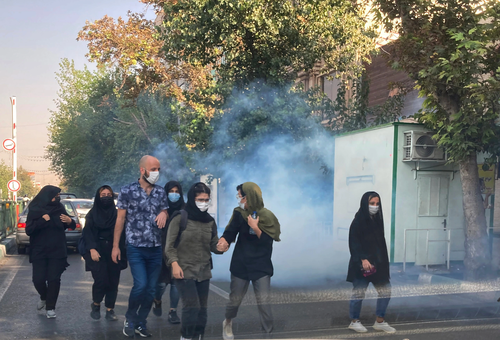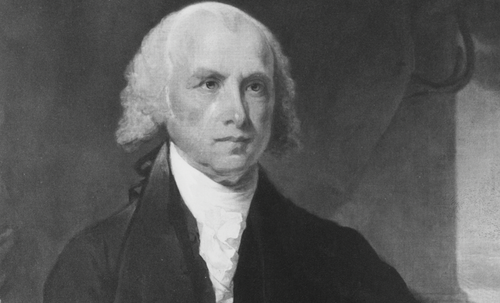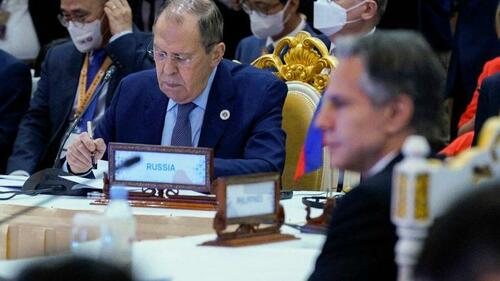CCP Seeks To ‘Replace’ US With ‘Tech-Powered Dystopia’: Select Committee Testimony
Authored by Andrew Thornebrooke via The Epoch Times (emphasis ours),
China’s communist regime is engaged in a concerted effort to undermine and replace the United States by weaponizing Americans against one another, according to testimony received by a new congressional committee focused on competition with the regime.
The House Select Committee on Strategic Competition between the United States and the Chinese Communist Party (CCP) held its first hearing on Feb. 28, titled simply “The Chinese Communist Party’s Threat to America.”
Committee Chair Mike Gallagher (R-Wis.) described the competition between the United States and CCP as an “existential struggle,” and said that the CCP, which rules China as a single-party state, was pitting “America against America,” hoping to topple the United States from within.
Ranking member Raja Krishnamoorthi (D-Ill.) agreed with the assessment, saying that the regime sought to exploit the political divisions endemic to democratic societies against the United States.
“The CCP wants us to be fractious, partisan, and prejudiced,” Krishnamoorthi said.
“We must rise to the occasion and prove them wrong.”
To that end, however, Gallagher noted that many powerful and monied interests within the United States had made their fortunes outsourcing American jobs to China, and were pushing back on U.S. efforts to secure itself against the regime.
“The CCP has found friends on Wall Street, in Fortune 500 C-suites, and on K Street who are ready and willing to oppose efforts to push back,” Gallagher said.
“This strategy has worked well in the past, and the CCP is confident it will work again. Our task on this committee is to ensure that it does not.”
‘Tech-Powered Dystopia’
Former National Security adviser H.R. McMaster testified on the issue, saying that the United States had “fallen behind” in the strategic competition with the CCP and that continued investments into China by American corporations were “underwriting our own demise.”
McMaster said that the “false promises of liberalization” had led to a corporate and political class within America that had largely expected continued investment in China to transform it into a more modern and democratic society.
Instead, he said, the regime had doubled down on its Marxist ideology and was now exporting destructive ideologies to erode support for the West.
To that end, McMaster said that a “curriculum of self loathing,” which asserts the United States is the reason for the world’s problems, had taken hold of much of the popular and academic culture in the West, and prevented the nation from adequately defending itself against continued espionage, theft, and repression by the CCP.
Likewise, Rep. Darin LaHood (R-Ill.) said that corporate America was “scared and worried” about the possibility of angering CCP authorities, and that the regime was exploiting that fear to undermine the United States on the world stage.
“China has a plan to replace the United States,” LaHood said.
As such, Gallagher said that the Select Committee would help to coordinate legislative efforts from across congressional committees, and focus on tackling the CCP’s ideological, technological, economic, and military efforts against the United States and its allies and partners.
Read more here…
Tyler Durden
Thu, 03/02/2023 – 21:00
via ZeroHedge News https://ift.tt/gh76jiX Tyler Durden





